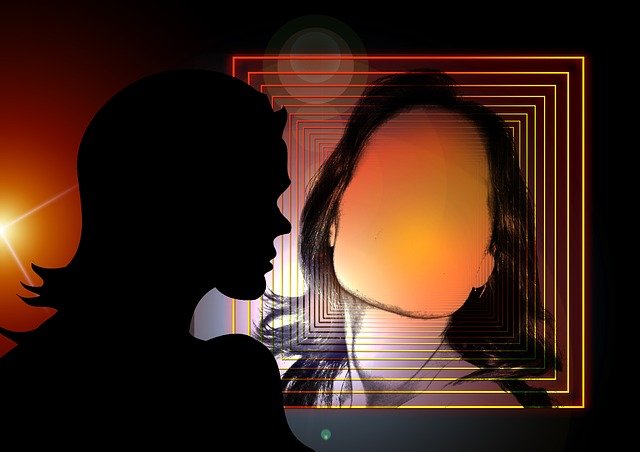
Traumatic events are any experience that causes harm and distress. The harm caused can be physical, emotional, spiritual, or psychological. The person who experienced trauma may feel fear and anxiety when thinking about the event.
Sometimes a person who suffers from trauma does not know how to appropriately respond to the event or thoughts about the experience. They may also be in denial about the effect that event has had on their well-being. To learn more about what happens to the brain after trauma, check out this article.
Types of Trauma
There are several different categories for trauma. There is acute trauma, chronic trauma, complex trauma, and secondary trauma.
Acute trauma is the trauma that results from a single event. This event is usually something very stressful and often is something dangerous. Chronic trauma comes from continuous or repeated exposure to an event that is very stressful. This is the type of trauma that results from domestic violence and child abuse. Complex trauma comes from exposure to multiple traumatic events.
Secondary trauma is a type of trauma where the person develops symptoms associated with trauma by being in close contact with a person who has experienced a traumatic event. This is more common with family members, mental health professionals, and any other people who care for someone who has personally experienced a traumatic event.
Trauma tends to be more common with certain major events. Abuse and assault are common causes of trauma. Furthermore, something as simple as an accident or the loss of a job can also contribute to trauma.
Symptoms of Trauma
A person who has experienced a traumatic event often has distressing memories of the event. This is more likely to occur when the person encounters a trigger or something that reminds them of the traumatic event.
When a person experiences trauma, they often feel increased awareness and hypervigilance. This is the body’s way of keeping you safe and making you aware of potential threats. Hyperarousal occurs as well and makes the person feel on edge. The body prepares us to flee or fight potential danger. After trauma, the body’s response to danger undergoes heightened sensitivity.
Someone who experiences trauma often experiences anxiety and intrusive thoughts. They may feel unsafe or feel like the world is more dangerous. They may feel threatened or anxious in places that used to be comforting. This is especially true of any locations that remind the person about the traumatic event.
Most symptoms associated with trauma are also symptoms of PTSD. However, there is a difference between trauma and PTSD. The symptoms are more severe with PTSD and it cannot be diagnosed until 30 days or more after the traumatic event. This is because the symptoms related to a traumatic event may reduce gradually over time after the event.
There are some additional symptoms that may be indications that there is a risk of developing PTSD. These may also get better over time, but ae more likely to lead to PTSD than other symptoms related to trauma.
A person may find that they are not interested in the same activities or hobbies that they used to enjoy. They may isolate themselves or feel detached from others. This is also a sign that there may be a risk of depression.
Avoidance of situations, people, places, or activities that remind the person of the traumatic experience is also common. Avoidance can reinforce the belief that the world is dangerous. Avoidance can also diminish a person’s support system and worsen the symptoms related to trauma. Over time, this may lead to PTSD as well.
People who suffer from trauma often attempt to cope in unhealthy ways. They may use alcohol or other substances to block or avoid the feelings and thoughts associated with the traumatic event.
Diagnosis and Treatment of Trauma
Not all trauma leads to PTSD and a mental health professional must diagnose a person accordingly. They will ask questions about the types of symptoms, their frequency, and their severity.
Trauma can be effectively treated with psychotherapy, medication, self-care, or a combination of these methods. Treatment options will often help a person cope by altering their emotional response to the trauma.
Therapy for trauma often uses cognitive behavioral therapy. This can help a person evaluate and manage their thoughts and feelings related to the traumatic event. They can then replace their negative thoughts and feelings with more logical, realistic thought patterns.
Eye Movement Desensitization and Reprocessing, or EMDR, is another therapeutic method. This method uses eye movements while the person thinks about the traumatic event. This can reduce the negative symptoms that would otherwise arise.
If you have been diagnosed with PTSD, there are a couple of different types of medications that may be beneficial as a part of treatment. Antidepressants may be beneficial for some people who suffer from PTSD. In addition, some anti-anxiety medications may also be used.
Coping with Trauma
After a person experiences a traumatic event, it is important to seek healthy coping methods. Many people who suffer from trauma will seek avoidance and other unhealthy coping strategies. These things can be unhealthy and are only a short-term solution if they help at all.
It is important to acknowledge your feelings. Pushing these feelings away can temporarily make you feel better, but it not a good long-term coping technique. You will have to give yourself time to deal with the thoughts and feelings associated with the traumatic event.
It is also important to have a good support system. Spending time with friends and family can help a lot even if you feel like you want to be alone. Isolation can increase the negative symptoms related to trauma. A lot of people also benefit from joining a support group because it allows you to speak and be in the company of people who have undergone similar experiences.
It is also important to take care of your own physical health. Try to get enough sleep every night and eat nutritious foods. Also, try to exercise regularly. Some people also benefit from developing a set schedule. Trauma can be disruptive and maintaining a routine can help you feel in control. Sticking to a routine will not remove all the anxiety and other negative aspects related to the trauma, it may help you focus on things that you can control.
Conclusion
Trauma can cause some distressing symptoms, but there are things that you can do to help. However, if your well-being is suffering from the experience of a traumatic event, then there are ways to effectively treat the negative thoughts, feelings, and behaviors. Therapy can be greatly beneficial, and you may want to seek the advice of mental health professional.

Marie Miguel has been a writing and research expert for nearly a decade, covering a variety of health-related topics. Currently, she is contributing to the expansion and growth of a free online mental health resource with BetterHelp.com. With an interest and dedication to addressing stigmas associated with mental health, she continues to specifically target subjects related to anxiety and depression.










